Artificial intelligence has become a critical tool for organizations to enhance productivity, innovation, and competitiveness. This webinar, which features Dror Weiss, Tabnine’s CEO, and Brandon Jung, VP of Ecosystems, covers the best ways to integrate AI into your team’s workflow.
Topics covered include whether AI will replace developers (spoiler: the answer is no, it will make them more efficient, and many developers are already incorporating AI into their daily work), the most productive ways that R&D organizations, developers, IT departments, system integrators, and other organizations are using AI within the SDLC, and how Tabnine’s AI technology helps developers save time and code better.
In addition, the webinar touches on the evolution of programming languages, the role of developers in the era of AI and how AI is giving developers superpowers, the importance of AI tools as a learning tool for coding, as well as how, in the future, every organization will probably have an AI layer as a strategic component of their tech stack.
Tabnine is an AI assistant tool used by over 1 million developers from thousands of companies worldwide. Tabnine Enterprise has been built to help software engineering teams write high-quality code faster and more efficiently, accelerating the entire SDLC. Designed for use in enterprise software development environments, Tabnine Enterprise offers a range of features and benefits, including the highest security and compliance standards and features, as well as support for a variety of programming languages and IDEs.
In his article for VentureBeat, Tabnine’s CEO, Dror Weiss, tackles three prevalent misconceptions about generative AI that are hindering enterprise progress. In today’s business landscape, as AI continues to gain traction, it is imperative to distinguish fact from fiction. A great resource for organizations looking to implement generative AI.

Tabnine is an AI assistant tool used by over 1 million developers from thousands of companies worldwide. Tabnine Enterprise has been built to help software engineering teams write high-quality code faster and more efficiently, accelerating the entire SDLC. Designed for use in enterprise software development environments, Tabnine Enterprise offers a range of features and benefits, including the highest security and compliance standards and features, as well as support for a variety of programming languages and IDEs.
The demand for reliable, accurate AI coding assistants is growing fast (let’s just say our sales team’s inboxes are currently flooded). Many enterprise R&D teams are currently exploring the capabilities of different tools, but it can be challenging to find an AI platform that not only provides accurate coding assistance but also provides enterprise-grade security and privacy while meeting the specific needs of each R&D team.
This post compares Tabnine Enterprise to Codeium for Enterprises, based on a range of key parameters that are critical to developers and R&D enterprise teams. By examining the capabilities of each tool, we aim to help you make an informed decision about which AI code assistant is right for your needs:
[table id=4 /]
This section takes a more in-depth look at how the two solutions compare.
Tabnine Enterprise charges $20 per user, while the cost of Codeium for Enterprises isn’t as straightforward and depends on the customer and their needs.
Both Tabnine and Codieum offer inline code completions within the IDE, as well as chat.
The use of code to train an AI solution’s models can have legal ramifications for customers using the solution.
Tabnine’s AI models are exclusively trained on code licensed under permissive licenses. This approach guarantees full transparency and attribution, which is critical in ensuring that Tabnine isn’t subject to the copyleft provisions of GPL licenses. By adhering to this policy, Tabnine can safeguard its users and customers from potential legal repercussions.
Furthermore, this practice aligns with Tabnine’s objective of respecting the original intent of code authors and maintaining good faith with the wider developer community.
It’s unclear whether or not Codeium’s models are trained on OpenAI or if they’re trained on nonpermissive licenses.
Tabnine Enterprise offers customers the option to self-host, deploying on the customer’s VPC or on-premises. Tabnine also supports cases where the customer network is air-gapped and can’t access the internet.
On the other hand, Codeium allows its enterprise customers the option of deploying on the customer’s VPC only. Running on a cloud (even a private cloud) means that code needs to leave the premises, which isn’t viable for some enterprises.
Tabnine Enterprise allows its customers to connect their own code repositories to its AI models, with the option to link specific models to particular repositories based on team or project needs. This feature allows the models to adapt and learn the organization’s unique coding practices, naming conventions, and preferred styles, resulting in highly relevant and context-sensitive code suggestions.
By leveraging this functionality, companies can streamline the onboarding and training process for new team members and junior developers, significantly reducing the burden on senior developers. The AI models learn from the company’s own code repositories, resulting in improved accuracy and efficiency in suggesting code, while maintaining consistency with the organization’s established practices.
Codeium trains its models on different coding languages and then fine-tunes the models on its customer’s codebase.
Tabnine Enterprise prioritizes the confidentiality and security of its enterprise customers’ code, ensuring that customer code and training data are never transmitted to Tabnine or used to train its general AI models. This guarantees that customers’ sensitive and proprietary information remains strictly private and protected.
Additionally, Tabnine Enterprise offers flexible deployment options for its customers, allowing them to install the tool on their virtual private cloud (VPC) or on-premises. By enabling customers to have full control over their data and where it is stored, Tabnine Enterprise ensures that their customers’ privacy needs are fully met.
Codeium, however, uses its customer’s code for telemetry purposes, although it’s possible to opt out of this option.
Since launching our first AI coding assistant in 2018, Tabnine has pioneered generative AI for software development. Tabnine helps development teams of every size use AI to accelerate and simplify the software development process without sacrificing privacy and security. Tabnine boosts engineering velocity, code quality, and developer happiness by automating the coding workflow through AI tools customized to your team. With more than one million monthly users, Tabnine typically automates 30–50% of code creation for each developer and has generated more than 1% of the world’s code.
Unlike generic coding assistants, Tabnine is the AI that you control:
Tabnine ensures the privacy of your code and your engineering team’s activities. Tabnine lives where and how you want it to — deployed as protected SaaS for convenience, on-premises for you to lock down the environment, or on VPC for the balance of the two. Tabnine guarantees zero data retention, and we never use your code, data, or behaviors to feed our general models.
Tabnine is also personalized to your team. Tabnine uses best-of-breed LLMs (which we’re constantly improving and evolving) and is context-aware of your code and patterns. This means that Tabnine provides coding suggestions and chat responses that take your internal standards and engineering practices into account.
Tabnine works the way you want, in the tools you use. Tabnine supports a wide scope of IDEs and languages, improving and adding more all the time. Tabnine also provides engineering managers with visibility into how AI is used in their software development process and the impacts it is having on team performance.
Try free for 90 days, or contact us to learn how we can help your engineering team be happier and more productive.
We are incredibly excited to announce that we are extending our partnership with Google Cloud to further advance generative AI on GCP. We are a part of many developers’ daily process as the leading AI tool for VS Code (5M) and JetBrains (2M).
Tabnine has been leveraging the capabilities of Google Cloud and has already extended its services to over one million monthly users. This is a significant milestone, which shows the popularity and effectiveness of AI-powered code completion technology.
Integrations with popular IDE’s like VSCode and JetBrains are straightforward and bring measurable uplift in developer productivity. Whether completing code or generating unit tests, Tabnine’s features are aimed at making an engineer more productive in a simple and seamless manner.
Our commitment to open source is another area where we align with Google Cloud. Their vision of open cloud fits very closely with the work we’ve done with Bert, SFDC’s T5, and Flan. In the space of foundational LLM’s we made a bet that open would win and have applied our expertise to fine tuning these models on code. We recognize the value of sharing knowledge and resources with the developer community and commit to a continuing support for a free version of Tabnine.
Tabnine has also built a strong partnership with the broader Google Cloud partner ecosystem. Some of Tabnine’s customers are Google’s services partners like SADA, Accenture, CI&T, and Booz Allen. These companies host multi and single tenant instances for their own clients, which are hosted inside their GCP projects. Tabnine’s kubernetes based architecture works with Google Kubernetes Engine (GKE) to make deployments simple, scalable and easy to manage.
The extended partnership between Tabnine and Google Cloud is great news for developers worldwide. It will help them to streamline their workflow, improve productivity, and make the software development process more efficient. With our commitment to open source and our growing user base, Tabnine has become a key player in the AI-powered code completion space.
“We’re thrilled to expand our work with Tabnine through the new Built with Google Cloud AI initiative,” said Manvinder Singh, Managing Director, Partnerships at Google Cloud. “Tabnine’s platform helpfully applies generative AI to streamline coding and support developers through a platform that is powered by Google Cloud infrastructure, and that further enables developers’ capabilities to build with AI on Google Cloud.”
Tabnine is an AI assistant tool used by over 1 million developers from thousands of companies worldwide. Tabnine Enterprise has been built to help software engineering teams write high-quality code faster and more efficiently, accelerating the entire SDLC. Designed for use in enterprise software development environments, Tabnine Enterprise offers a range of features and benefits, including the highest security and compliance standards and features, as well as support for a variety of programming languages and IDEs.
Automation testing tools are software programs that are used to automate the process of testing. These tools can be used to run repetitive tests, perform regression testing, and test the functionality and performance of an application. Some common types of automation testing tools include:
Automation testing tools and AI testing tools are both used to automate the testing of software applications and systems, but they differ in the way they automate the testing process.
Automation testing tools are designed to automate repetitive, time-consuming tasks and help ensure that software is functioning correctly and meets specified requirements. These tools can automate the execution of test cases and the comparison of actual results with expected results. They can also be used to automate the creation of test cases, but typically require the manual creation of test cases.
On the other hand, AI testing tools use artificial intelligence and machine learning techniques to automate the testing process. These tools can be used to improve the efficiency and effectiveness of testing by reducing manual effort, increasing test coverage, and identifying defects and issues more quickly. They can be used for tasks such as generating test cases, optimizing the test execution process, analyzing test results, predicting the results of tests, and summarizing test results.
Selenium is an open-source browser automation tool that is primarily used for automated functional testing of web applications. It allows developers to write scripts in programming languages such as Java, C#, Python, Ruby, and JavaScript, which can then be used to automate the interaction with a web browser. Selenium can be used to automate a wide range of tasks such as:
Selenium is often used in conjunction with other testing frameworks and tools such as JUnit, TestNG, and Maven for building and running test suites. Selenium can interact with a wide range of web browsers, including Chrome, Firefox, Edge, and Safari, and it supports a variety of operating systems including Windows, macOS, and Linux.
Appium is an open-source, cross-platform test automation tool for mobile apps. It allows developers to write tests in multiple programming languages, including Java, Ruby, Python, C#, and JavaScript, and run them on both Android and iOS platforms. Appium supports both Android and iOS native, mobile web, and hybrid apps. Notable capabilities include remote and parallel testing.
Appium uses a client-server architecture, where the client sends commands to the server, which then executes them on the mobile device. This allows Appium to interact with the mobile app as a user would, performing actions such as clicking buttons, entering text, and scrolling through lists. Appium can also access the mobile device’s internal APIs, such as GPS and camera, to perform more advanced testing.
Katalon Studio is an automation testing tool for web, mobile, and API testing. It is a powerful solution for test automation that supports both keyword-driven and data-driven testing. It is built on top of Selenium and Appium and provides a user-friendly interface and a wide range of built-in functionalities to help users automate their tests easily and efficiently.
Katalon Studio provides a comprehensive set of features for testing web applications, including support for web, mobile and API testing, record and playback, integration with various testing frameworks, and built-in reporting and analytics. It also supports test execution on various environments, including local, remote, and cloud-based environments.
One of the main advantages of using Katalon Studio is its ability to support both manual and automated testing, which makes it suitable for both experienced and new testers.
Cypress is an end-to-end testing framework for web applications. It is designed to make it easy to set up, write, run, and debug tests for web applications. Cypress is built on top of JavaScript and uses a browser-based architecture that allows it to interact with a web application in the same way that a user would. This means that Cypress tests can simulate clicks, form submissions, and other user interactions, and can also access and verify the application’s state and behavior.
Cypress comes with a built-in test runner, and supports real-time reloads, time-travel debugging and automatic waiting, which makes it easier to write, debug and run tests. Cypress also supports parallel test execution, which enables you to run tests on multiple browsers or devices at the same time. This can help reduce the time it takes to run your tests, and give you more confidence in your application’s functionality.
LambdaTest is a cloud-based cross-browser testing platform that allows you to test your web applications and websites on different browsers, operating systems, and mobile devices. It is a third-party tool that enables you to perform manual and automated testing on a wide range of browsers and devices, including desktop browsers, mobile browsers, and real mobile devices.
LambdaTest offers a number of features to help you test your web applications and websites, including:
TestComplete is an automation testing tool developed by SmartBear Software. It is used to test the functionality and performance of desktop, web, and mobile applications. TestComplete supports a variety of programming languages including Python, JavaScript, C++, C# and VBScript, and can be integrated with a number of different development environments, including Visual Studio and Eclipse.
TestComplete provides a comprehensive set of features for automating functional and regression testing, including support for record and playback, object-based scripting, and data-driven testing. It also has built-in support for testing web, mobile and desktop applications.
TestComplete also includes a visual object recognition feature, which allows you to easily identify and interact with the objects within your application, as well as integrated debugging, logging, and reporting capabilities.
Ranorex is a commercial automation testing tool that is used for functional and regression testing of desktop, web, and mobile applications. It provides a set of automation libraries and a GUI-based test editor that allows users to record, edit, and execute tests for a variety of different platforms, including Windows, Mac, Android, and iOS.
Ranorex offers a wide range of features, including:
Applitools is a software testing tool that is used to automate the process of visual testing for web and mobile applications. It uses advanced image and optical character recognition (OCR) algorithms to compare screenshots of an application’s user interface (UI) to a set of expected results. This allows developers to quickly and easily catch visual bugs, layout issues, and other UI problems that might be difficult to spot manually.
Applitools also provides a variety of features to help with test automation, such as support for multiple browsers and devices, integration with popular test frameworks, and the ability to run tests in parallel to speed up the testing process.
In addition to that, Applitools also provides a cloud-based platform called “Applitools Ultrafast Grid” that helps in running automated tests on a large scale and in parallel across multiple browsers, viewports and devices with minimal setup.
Applitools is particularly useful for web and mobile applications that have a lot of visual elements or that are frequently updated, as it can help ensure that the UI remains consistent and error-free.
Mabl is a cloud-based, AI-powered test automation platform that allows users to automate the testing of web applications. It uses machine learning algorithms to automatically identify and interact with elements on a web page, and can be used to perform functional testing, regression testing, and performance testing.
Mabl’s key features include:
The future of testing tools with generative AI is likely to see a greater integration of artificial intelligence and machine learning techniques into the testing process.
With the help of generative AI, test cases can be generated automatically and in a more efficient way, increasing the coverage of testing and discovering new defects and issues that would have been missed with manual testing. This can help to improve the overall quality of the software and reduce the time and effort required for testing.
Generative AI can also be used to supercharge test driven development (TDD). Developers who practice TDD try to create tests before adding functionality to code – initially the tests fail, and then when functionality is working, they pass. Generative AI tools can be used to easily create these tests without slowing down development work.
Lastly, Generative AI technology can be integrated into the CI/CD process, to automatically create tests that are missing from a test suite during the build process. This can dramatically increase the agility of the testing process.
Tabnine, the AI assistant for software development, has introduced AI-powered unit test generation capabilities to its platform. Tabnine is an AI assistant tool used by over 1 million developers from thousands of companies worldwide. Tabnine Enterprise has been built to help software engineering teams write high-quality code faster and more efficiently, accelerating the entire SDLC. Designed for use in enterprise software development environments, Tabnine Enterprise offers a range of features and benefits, including the highest security and compliance standards and features, as well as support for a variety of programming languages and IDEs. The use of AI results in fewer bugs and better code stability, which is especially important for projects with tight deadlines or larger teams.
Both Tabnine and Copilot offer AI coding assistant solutions for R&D teams. So which solution is better?
We’ve put together a comparison using the most common parameters that we’ve encountered in our work as developers, while also serving the dev community for several years. From our POV, these parameters reflect the most important needs, pain points, and challenges that must be addressed by AI code assistants for enterprises:
[table id=5 /]
Let’s look at the parameters and how each solution compares.
Tabnine Enterprise offers full privacy for its customers’ code:
This ensures you always have complete control over your IP and protection against IP leakage.
On the other hand, Copilot for Individuals and Copilot for Business send both code snippets and user engagement data to Microsoft.
With Copilot, it’s possible to opt out of saving code snippets; however, user engagement data is collected and used to improve Copilot’s AI models.
The code on which a solution’s AI models are trained can have a serious impact on the companies that use the solutions.
Tabnine doesn’t train (and never has trained) its AI models on code with nonpermissive licenses and offers full transparency and attribution. This means that Tabnine isn’t restricted by the GPL license’s copyleft provisions, and protects users and customers from possible related consequences. In addition, it’s always been Tabnine’s goal to honor the intent of code authors and maintain good faith with the rest of the developer community.
On the other hand, Copilot trains its models on OpenAI, which could result in legal exposure for its customers. This is because OpenAI is trained on nonpermissive open source, such as GPL, and doesn’t disclose its training set or provide references. Copilot does offer a filter to remove code suggestions that contain problematic code; however, it’s not always effective, meaning that the legal risk remains.
While Copilot is trained only on OpenAI, Tabnine Enterprise allows customers to connect Tabnine’s AI models to their code repositories. This means the models, which are only accessible to the customer, can learn the organization’s coding best practices, styles, naming conventions, and more, resulting in code suggestions that are more context-sensitive and relevant. In addition, this allows for faster onboarding and training of new team members and junior developers.
Both Tabnine Enterprise and Copilot Business offer central management and configuration; however, the features offered are different.
Tabnine Enterprise’s centralized configuration allows customers to:
Copilot Business’s centralized configuration allows customers to:
Copilot for Individuals doesn’t offer centralized configuration and allows customers to:
On the surface, the price appears to be almost the same ($20 per Tabnine Enterprise user, $19 per Copilot Business user).
However, Copilot Business is only available to companies using GitHub Enterprise, which charges $210 per seat per year. In effect, that’s a barrier for enterprise companies that don’t need or want GitHub Enterprise.
Copilot for Individuals costs $10 per month (or $100 per year). However, the Individual plan doesn’t include any of the features suited for enterprise, including privacy and security.
Both Tabnine Enterprise and Copilot Business allow enterprise customers to configure and manage user roles and permissions. However, Copilot for Individuals doesn’t offer any user management capabilities.
Whether you’re choosing an AI coding assistant to make your life easier as an individual developer or choosing a tool to deploy to your entire engineering team to improve the effectiveness and satisfaction of your team, it’s critical to evaluate potential vendors holistically:
Only Tabnine meets all of these requirements expected by enterprise engineering teams and has the history and scale of developer adoption to prove it.
Since launching our first AI coding assistant in 2018, Tabnine has pioneered generative AI for software development. Tabnine helps development teams of every size use AI to accelerate and simplify the software development process without sacrificing privacy and security. Tabnine boosts engineering velocity, code quality, and developer happiness by automating the coding workflow through AI tools customized to your team. With more than one million monthly users, Tabnine typically automates 30–50% of code creation for each developer and has generated more than 1% of the world’s code.
Unlike generic coding assistants, Tabnine is the AI that you control:
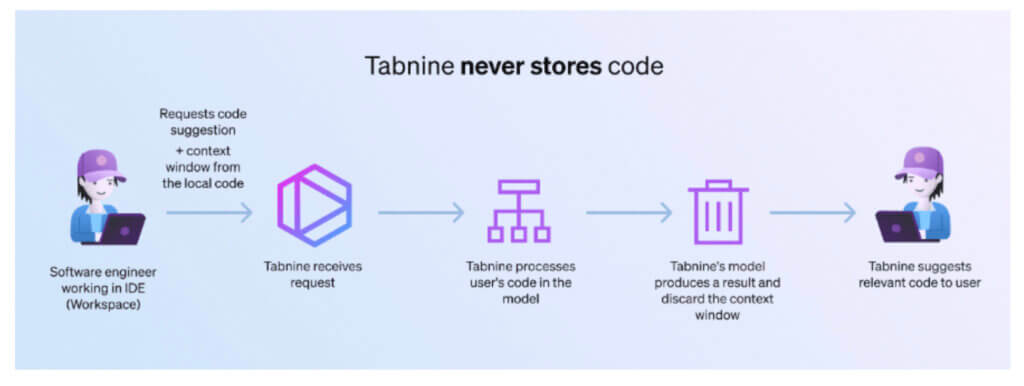
Tabnine ensures the privacy of your code and your engineering team’s activities. Tabnine lives where and how you want it to — deployed as protected SaaS for convenience, on-premises for you to lock down the environment, or on a virtual private cloud for the balance of the two. Tabnine guarantees zero data retention, and we never use your code, data, or behaviors to feed our general models.
Tabnine is personalized to your team for optimal impact on your business. Tabnine is built on best-of-breed large language models (with the flexibility to switch as new models emerge or improve) and gives you the ability to fine-tune or deploy fully customized models. Tabnine is context-aware of your code and patterns, delivering recommendations based on your internal standards and engineering practices.
Tabnine works the way you want, with the tools you use. Tabnine supports a wide scope of IDEs and languages, improving and adding more all the time. Tabnine also provides engineering managers with visibility into how AI is used in their software development process and the impacts it is having on team performance.
Tabnine is secure and trusted. Tabnine believes in building trust through algorithmic transparency and thus shares how our models are built and trained with our customers. Furthermore, we’re relentlessly focused on protecting our customers’ interests by only training on code with permissive licenses and only returning code recommendations that will not be subject to future questions of ownership and potential litigation. We respect open source code authors and their rights as well as the rights of every one of our customers.
As you should expect from any vendor, Tabnine offers proven, enterprise-grade security and meets key industry standards.
Get started with Tabnine for free for 90 days, or contact us to learn how we can help your engineering team be happier and more productive.
As artificial intelligence moves in to transform industries as diverse as banking and art, leaders of companies in every field must ask themselves: how can AI potentially improve my team? In software development, the potential applications of AI are so significant that they are poised to usher in a massive transformation in how dev teams work, saving developers time, reducing errors, and improving decision-making. Integrating AI is not a matter of if, but when. And there’s no better time than the present.
There is no getting around it: Human beings are fallible. In the world of coding and software development, the human capacity for error is the reason behind things like code review, quality assurance, testing, and, of course, lots of bugs. In short, a lot of manpower goes into trying to anticipate, correct, and manage the human error factor.
Indeed, artificial intelligence is a tool that has been and will continue to be used to help augment what humans can do, reducing errors, improving efficiency, and boosting speed. With its powerfully transformative nature, embracing AI for coding is absolutely essential.
AI has the potential to offer a variety of significant benefits to developer teams, including:
[cta_btn url=”https://www.tabnine.com/enterprise?contact-enterprise” label=”Request a demo”]
AI has an infinite number of potential applications. These are the ones forecasted to most disrupt the way development is done in the next few years.
Similarly to how Google can predict the search you’re going to make based on your first few keywords, code completion tools can finish lines and entire functions of code as developers are writing them. With tools like Tabnine, developers can accept a prediction or keep typing to get more alternatives adapted to the code context. As you can imagine, this can save a tremendous amount of time, skyrocketing developers’ efficiency.
AI-based personal assistants are quickly increasing in popularity, with features that can assist a developer in non-coding tasks such as managing pull requests. By helping to automate and optimize the more boring and repetitive coding-related tasks that developers are required to do (such as debugging and testing), these tools save significant time for developers, allowing them to maintain focus on the technical side of their job rather than the task management minutiae.
AI art engines, such as DALL·E 2 and Midjourney, are revolutionizing the way that graphics and art are created, allowing users to create images with natural language prompts. By breaking down the barriers to creating art, these AI art engines are ushering in a new era for visual creativity.
Just because software development is a technical field doesn’t mean that the industry is having an easier time accepting the coming AI revolution than others. Indeed, there are still many concerns regarding the implementation of AI for developer teams.
One of the greatest fears surrounding AI in all industries is the fear that it is going to replace human employees. But AI tools aren’t created to compete with human programmers; they’re created to help them and enhance their abilities. Because while training AI to completely replace humans isn’t necessarily impossible, it is highly impractical, and not on the horizon anytime soon.
Another common concern regarding AI automation is the fear that machines simply aren’t capable of producing the same level of creativity and innovation that human programmers can offer. But AI tools aren’t trying to do so. Instead, they work to free up programmers’ time and resources so that they can focus even more on the complex, creative work at which they are best.
The code that AI algorithms were trained on was written by somebody. Responsible AI algorithm development requires taking care to ensure that all code used has been appropriately licensed. In fact, some code completion platforms may be facing potential lawsuits for possibly infringing on the licensing agreements of certain software. Others, like Tabnine’s AI models, are only trained on repositories with permissive open-source licenses. In addition, Tabnine’s models are never trained on their users’ code.
AI is well on its way to becoming a central part of the development workflow that we can no longer imagine living without. It isn’t supplemental; it’s essential, and it is only going to become more necessary with time. In order to set your development team up for success, make their jobs more efficient and effective, and attract and retain top developer talent, you must embrace and integrate AI into your workflows. Not later – now.
[cta_btn url=”https://www.tabnine.com/enterprise?contact-enterprise” label=”Request a demo”]
Suppose you’re a software developer who hasn’t heard of Microsoft’s GitHub Copilot. In that case, I’m curious about the amenities in the distant cave you must have been vacationing in for over a year. You’ve probably used or at least heard of Microsoft’s GitHub Copilot as a software developer. The crowdsourced code completion plugin has made waves throughout the global dev community since its launch in July 2021.
Then the free beta period ended, and developers had to pay a subscription fee. Unsurprisingly, many of these users turned to Copilot alternatives.
Our list of the best GitHub Copilot alternatives includes free and language-specific tools and paid services that charge a subscription fee. Before we compare and contrast them with GitHub Copilot, it’s worth going over the main features of the product Microsoft dubs “a first-of-its-kind AI pair programmer.”
GitHub Copilot is a code completion tool from GitHub and OpenAI. It employs OpenAI’s Codex, a transformer trained on billions of code lines on GitHub, to autogenerate code based on the current file’s contents and your cursor location. Copilot is compatible with popular code editors like Visual Studio Code, Visual Studio, Neovim, and JetBrains IDEs and supports languages like Python, JavaScript, TypeScript, Ruby, and Go.
According to GitHub and user reviews, Copilot can generate whole code lines, functions, tests, and documentation. All it needs is context and the behind-the-scenes work of developers who committed their code to GitHub, regardless of their software license.
When the Copilot beta ended, GitHub released the pricing for individual users. The subscription included a 60-day free trial, which would turn to $10/month or $100/year per user.
No free subscription
Free licenses are still available, but they’re now limited to OSS maintainers and students only.
No midline code completion
As noted previously, Copilot requires a great deal of context to produce any code. The more context you provide, the more accurate the results will be. However, Copilot will only offer you the following line, function, or whole block of code based on context and cursor location. You still have to type entire lines and correct the code generated instead of saving the keystrokes by letting the tool autocomplete as you type.
AI models can’t run locally
Do you like to code offline or need to keep your code local for compliance reasons? Then Copilot is not for you. The AI models cannot run locally.
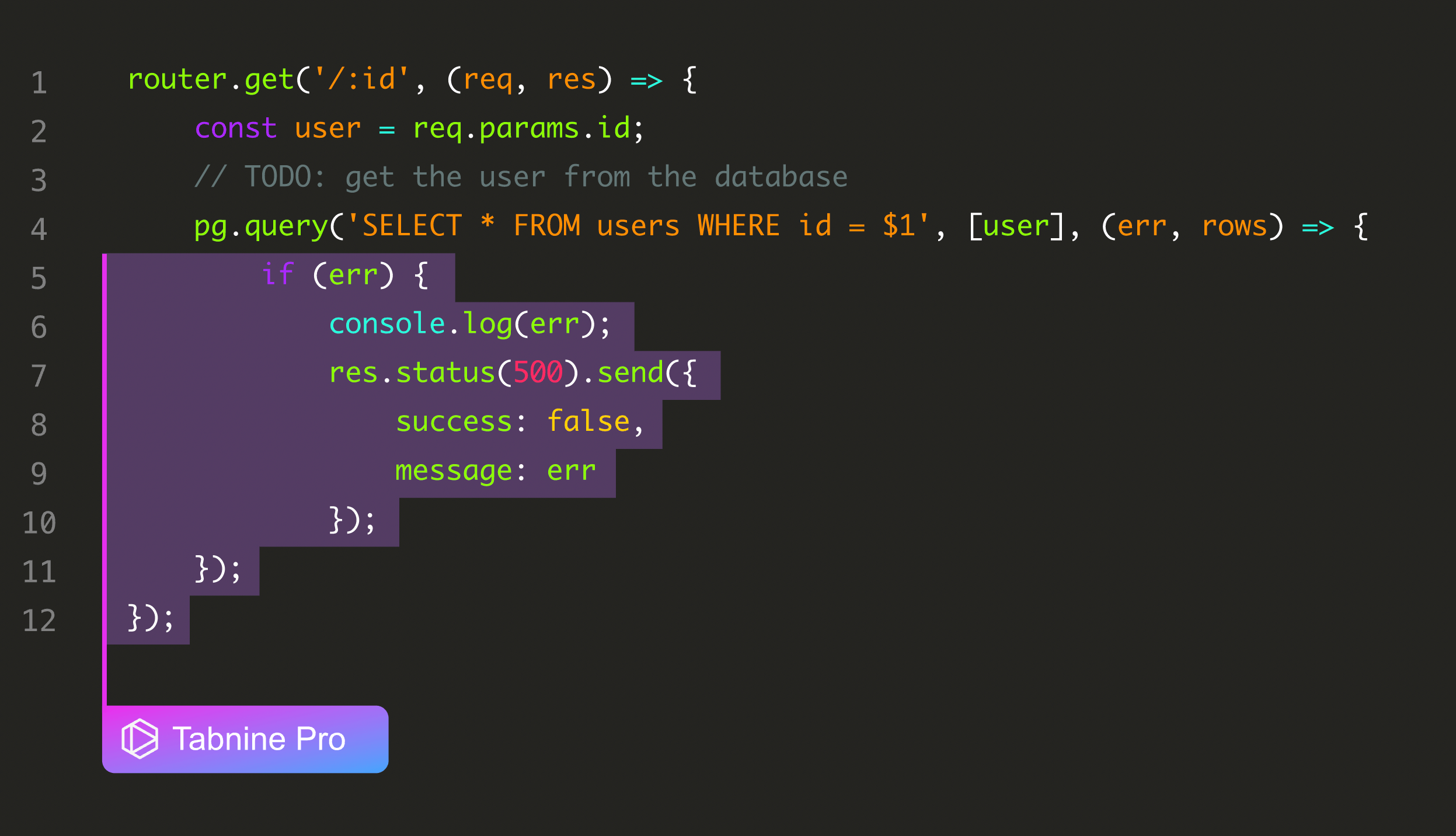
[cta_btn url=”https://www.tabnine.com/pricing/landing” label=”Start a free trial”]
One of the first code completion tools on the market is Tabnine (previously known as Codota). The Tabnine code completion plugin supports all the most popular languages, libraries, and frameworks in your favorite IDEs. Tabnine’s AI models are only trained on permissive open source licensed code, so your code will always remain yours.
A unique feature of the Tabnine Pro subscription is training your own private AI model based on your code and getting personalized code completions that match your style and patterns. This way, you don’t need to rely on code written by anyone else but yourself in your repositories.
For teams and organizations, the ability to host and train your own AI models enables collaborative autocompletion across IDEs. It also adds to code security as you get to keep the codebase and AI model on your secure corporate servers.
It’s also worth noting that Tabnine requires a lot less context than Copilot to generate code for you. In fact, with Tabnine you get midline suggestions as you type rather than suggestions for the next line of code upon completing the previous one.
Pricing: A free account enables short code completion and Pro accounts start at $12/month per user. (There’s also a 90-day free trial available). Enterprise account pricing is available on quote. Tabnine Enterprise offers a secure coding environment for your development team. You can benefit from powerful AI code assistance for more productive and bug-free coding while keeping your company’s data safe and secure.
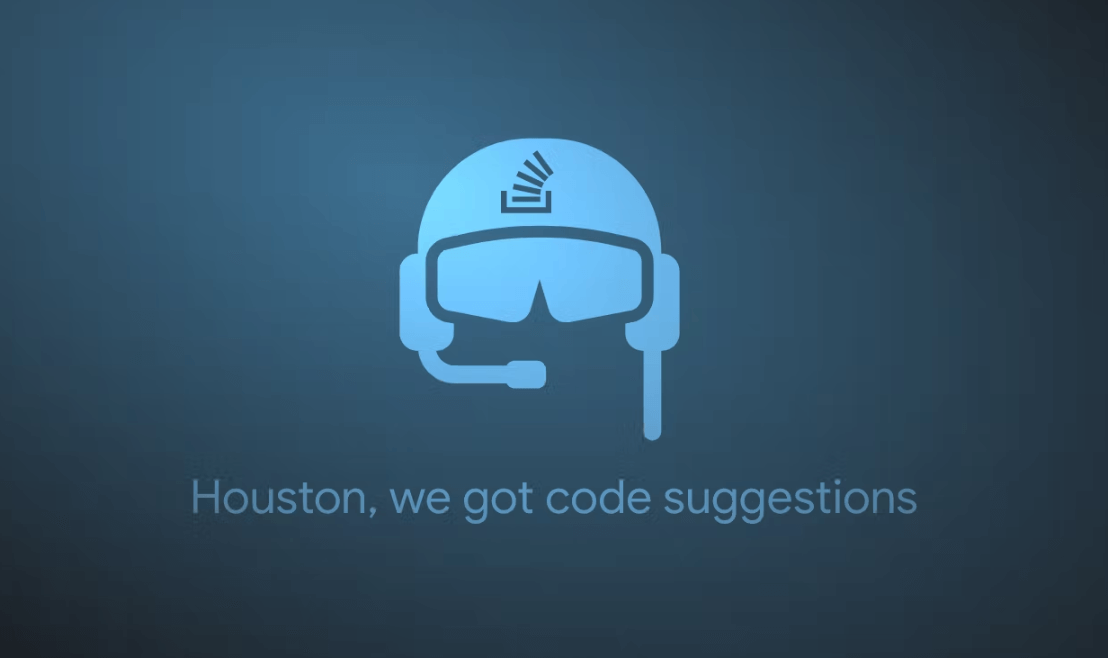
Developers and StackOverflow are like human resources managers and LinkedIn. We need our platforms and tools. Captain Stack is an open source VS Code plugin that’s a bit of both. Inspired by Copilot, Captain Stack is a code suggestion tool that uses Google instead of AI. It sends your search query to Google, retrieves StackOverflow and GitHub Gist answers, and autocompletes them.
Pricing: Free.

Another open source alternative to Copilot is GPT-Code-Clippy. According to the description, GPT-Code-Clippy (GPT-CC) is an open source version of GitHub Copilot, a language model (based on GPT-3, called GPT-Codex) that is fine-tuned on publicly available code from GitHub.
Similar to Captain Stack, GPT-CC is only available as a plugin for VS Code.
Pricing: Free.
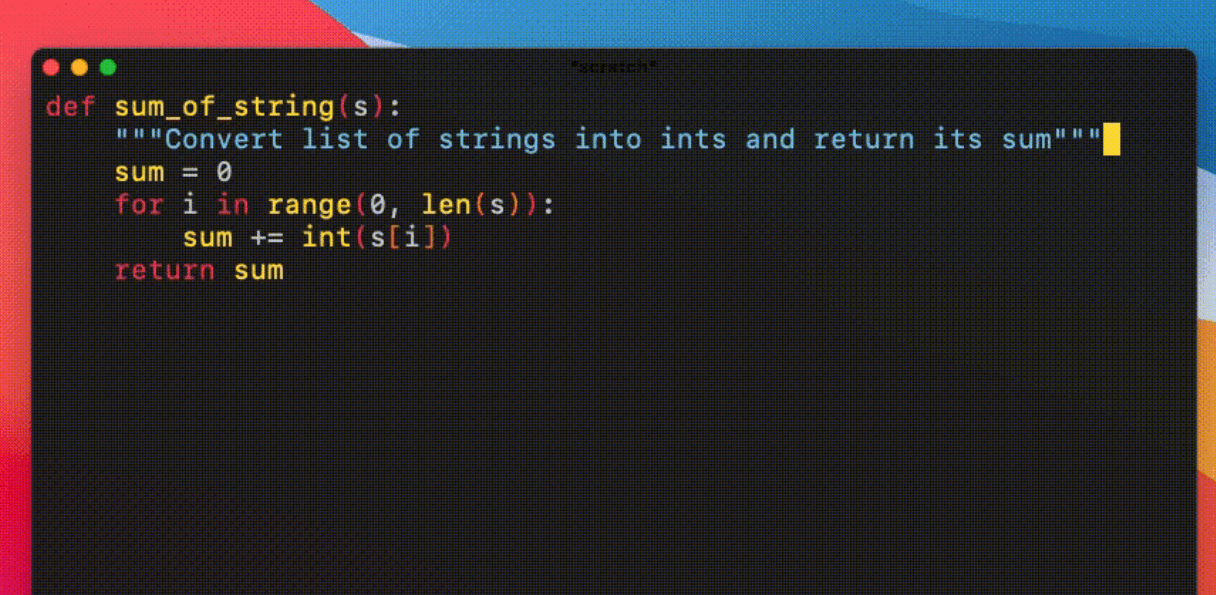
Second Mate is another open source imitation of GitHub Copilot. It uses EleutherAI GPT-Neo-2.7B (via Huggingface Model Hub) for Emacs. It’s a much smaller model, so it will likely not be as effective as Copilot or other alternatives. On the other hand, you can run it on Emacs, and it’s free.
Pricing: Free.
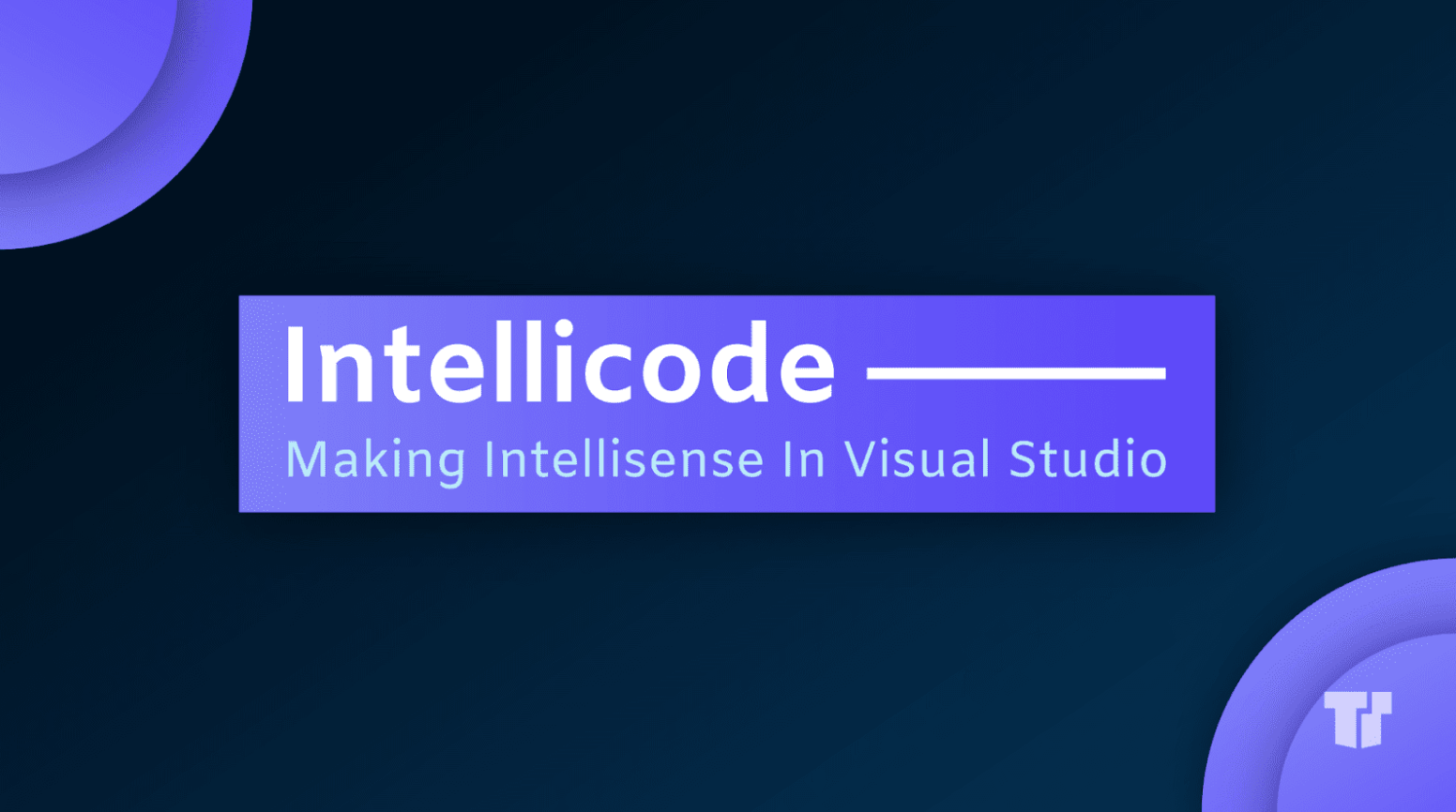
IntelliCode is an experimental AI coding assistant trained on a subset of GitHub projects, a Microsoft product available for Visual Studio only. One of the more attractive features of IntelliCode is team completion. Team completion may prove beneficial for organizations with a Microsoft-based architecture and developers accustomed to Visual Studio in an age of remote working. However, if you’re looking for a cross-IDE solution that enables team autocompletion training, Tabnine supports this feature for all popular IDEs out there.

With Microsoft tempting developers through GitHub and Copilot, it was clear other tech giants would step in. In June 2022, Amazon launched its own AI pair programming tool named CodeWhisperer. CodeWhisperer was trained, according to Amazon, “on billions of lines of code drawn from open source repositories, internal Amazon repositories, API documentation, and forums.”
At the time of writing, CodeWhisperer is available in its preview version only upon signup and can be installed on any IDE that supports AWS IDE tools.
Pricing: Free (in preview)
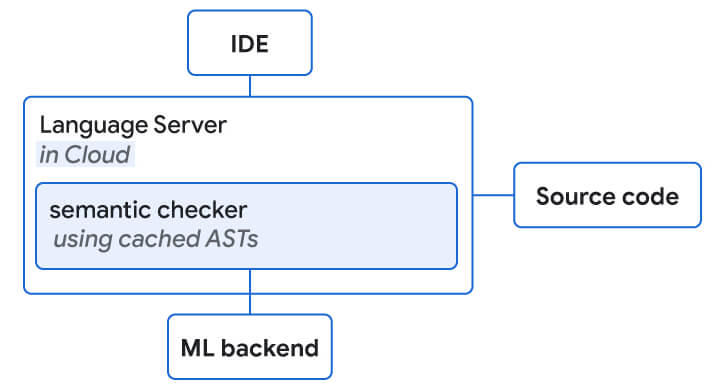
Google Transformer-based hybrid semantic ML code completion — you can’t expect Google to stay silent with Amazon and Microsoft on the scene. So, as expected, Google released its code completion engine in July 2022. However, at the time of writing, it’s available only to developers working at Google itself.
If you’re a Vim user, you might want to look at YouCompleteMe, a free autocompletion library for your favorite code editor. YouCompleteMe has several completion engines built in and supports any protocol-compliant Language Server to work with practically any language.
Though free and flexible, expect the setup to be lengthy and complicated if you plan to code in more than one language.
Pricing: Free.
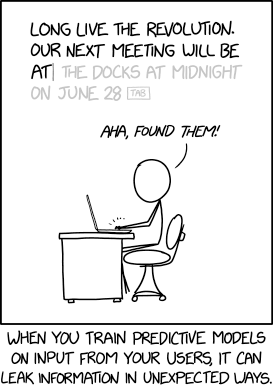
The last solution in our list is worthy of mention because it’s one of the more flexible and user-friendly solutions offered for free. Unfortunately, at the time of writing, Kite is unavailable for download and is not maintained.
Source: https://xkcd.com/2169/
Pricing: Free.
Machines aren’t coming for your job. They’re coming for the boring parts that make your wrists ache. AI code prediction and completion tools and services are here to stay. It’s only a matter of choosing the most suitable platform for your needs that will enable you to code faster and better.
Tabnine is the AI coding assistant that accelerates and simplifies software development while keeping your code private, secure, and compliant. Boost engineering velocity, code quality, and developer happiness by automating the coding workflow through AI tools customized to your team.
[cta_btn url=”https://www.tabnine.com/pricing/landing” label=”Start a free trial”]
Artificial Intelligence is rapidly changing nearly all aspects of life and business, and software development is no exception. We started Tabnine with a single goal in mind, to put the power of AI in the hands of developers and teams. Our top priority since day one has been to help developers become better with intelligent tools that fit seamlessly into their workflow. The rapid adoption of Tabnine and the consistently enthusiastic feedback from developers has already made it clear that we’re onto something huge.
The announcement of GitHub Copilot marks a milestone for AI-Assisted Software Development in general and for Tabnine in particular. As pioneers in the AI-Assisted Software Development space, we’re excited to see giants like Microsoft, OpenAI, and GitHub recognize this incredible opportunity.
At Tabnine, we believe in putting the developer at the center, using AI as smart tooling that augments and assists developers, making them better. We will continue to prioritize making developers successful above anything else. In particular, we’ll invest in key factors that we believe make Tabnine so appealing to developers using all IDEs and programming languages:
I am certain that AI will play an incredibly important role in modern software development. At Tabnine we’re proud to be a part of bringing this future to life and leveraging the amazing technology efficiently and responsibly for the benefit of developers and teams.
Eran reacts to a recent quote from AI Pioneer Geoff Hinton: “Deep learning is going to be able to do everything.” He points out that the limitations to “everything” won’t be the computational ability but the access to sufficient data. Kyle challenges whether the outcomes of ML decisions will be acceptable in life if they’re less intuitive (even if technically more optimal). The conversation broadens to the classic questions of distinctions between AIs and humans (feelings, emotions, empathy), and whether we’re headed to a future that freedom of choice is subjugated to the “superiority” of machine-learning-based decision making.